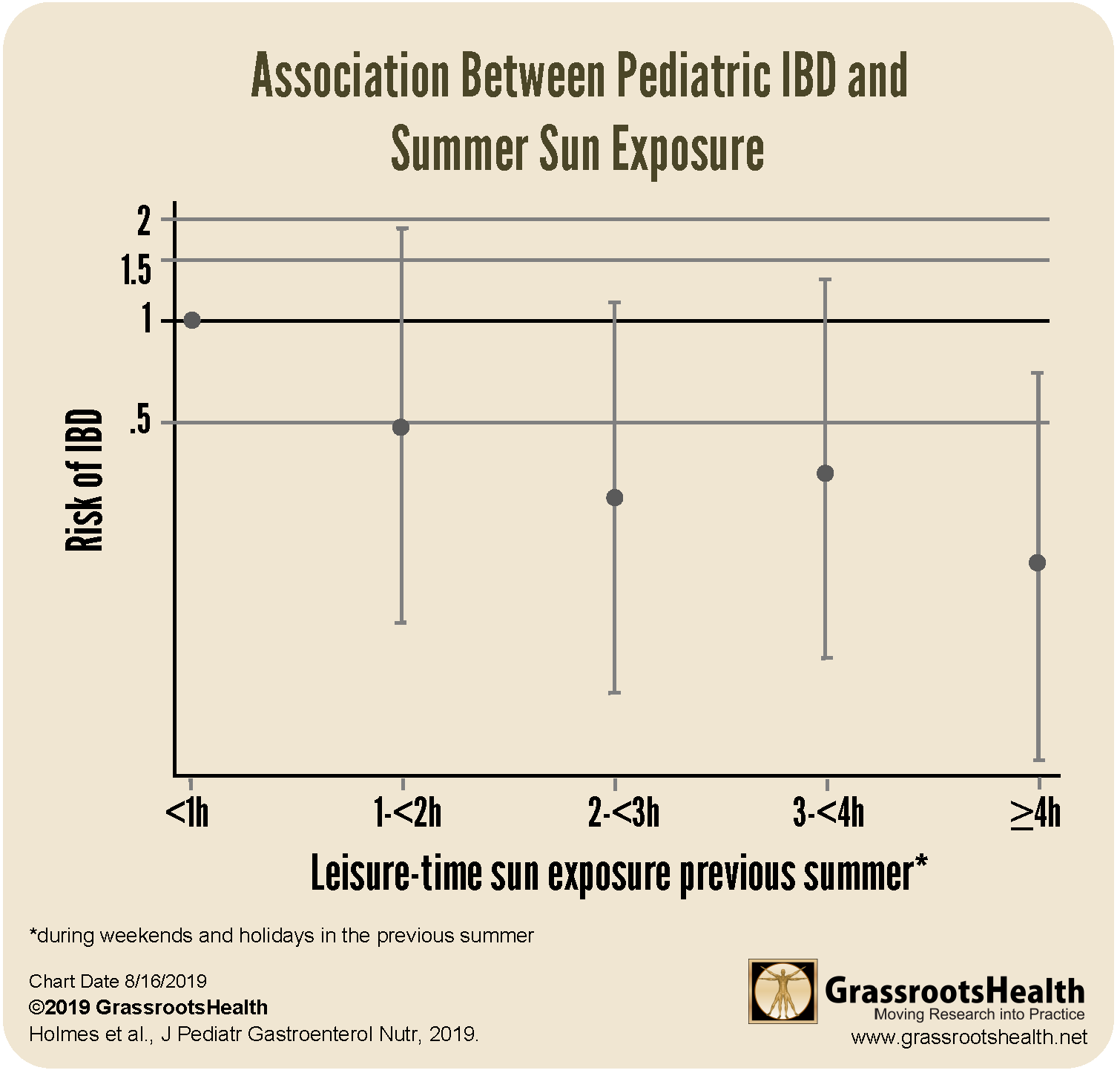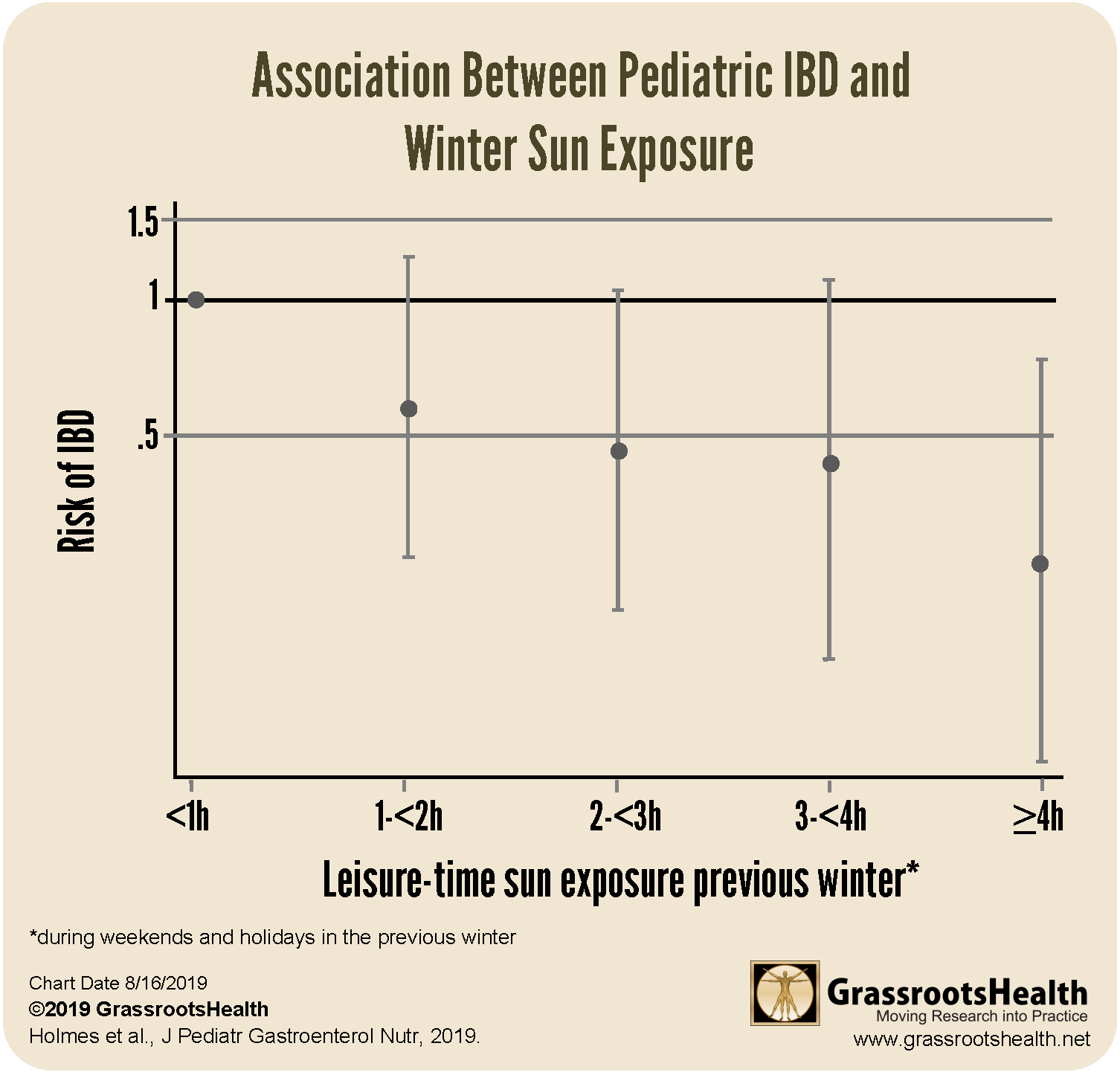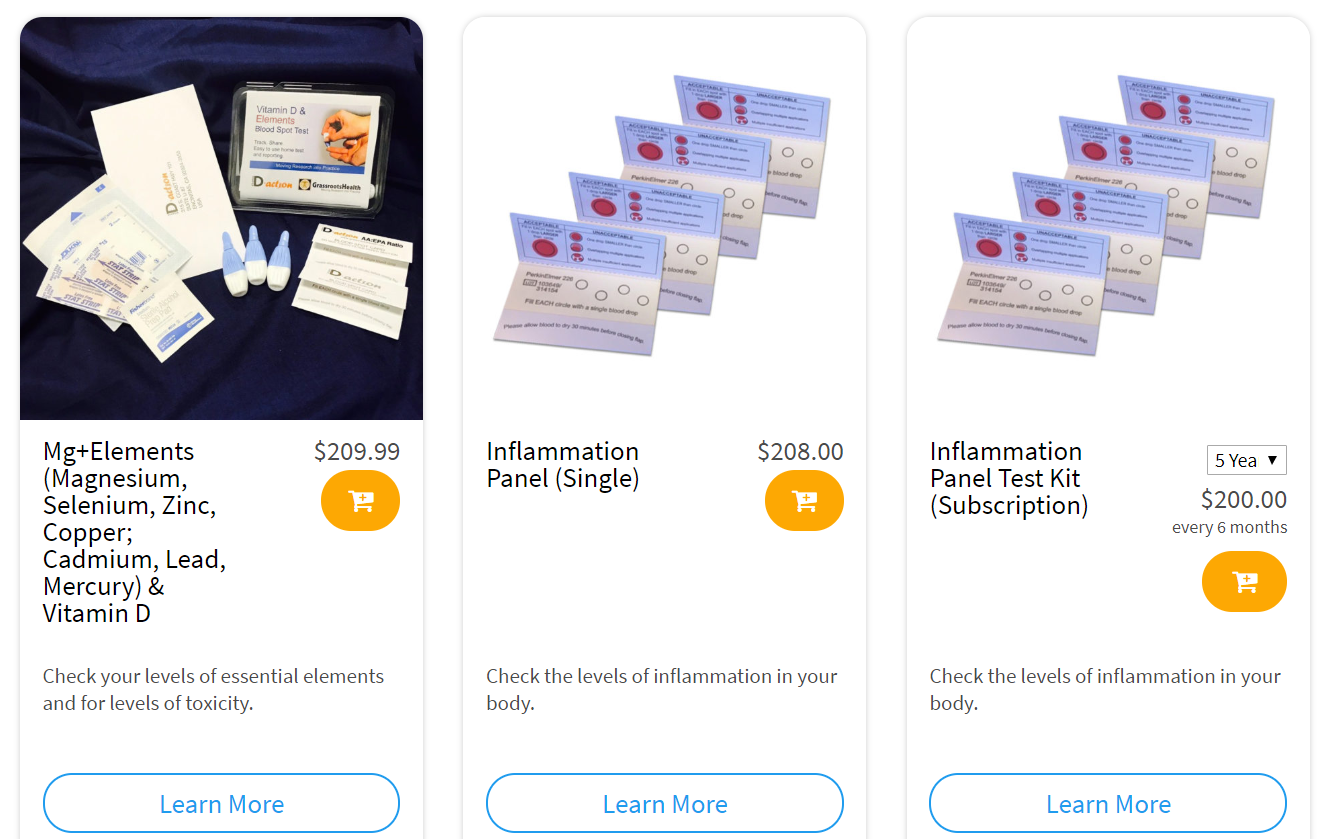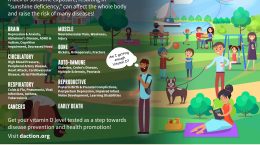Published on August 20, 2019
 Inflammatory bowel disease (IBD) is an autoimmune disease causing chronic inflammation in the digestive tract. IBD is rare in children, but rates have been increasing over time. Rates of pediatric IBD are higher in areas further from the equator and with lower UV radiation. This month (August 2019), results were published from a study assessing the association between sun exposure and IBD among children aged 0-17 years.
Inflammatory bowel disease (IBD) is an autoimmune disease causing chronic inflammation in the digestive tract. IBD is rare in children, but rates have been increasing over time. Rates of pediatric IBD are higher in areas further from the equator and with lower UV radiation. This month (August 2019), results were published from a study assessing the association between sun exposure and IBD among children aged 0-17 years.
What were the findings of the study?
This study included 99 IBD patients and 396 controls (children without IBD) from Melbourne, Australia. The research team found a 6% reduced risk of IBD for every 10 minutes sun exposure in the previous summer or winter (P=0.002). The association was stronger as age increased indicating a long-term, cumulative effect.
This study supports previous evidence demonstrating that UV irradiation has beneficial effects on the immune system and could help prevent disease.
Are you getting enough vitamin D?
Testing your vitamin D level regularly and taking daily steps to keep it at a target level of 40-60 ng/ml (100-150 nmol/L) is important for all stages of health. Find out your levels today! Log on to the shop (click the link below) to get your tests and see for yourself if your levels can be improved.
Make sure you track your results before and after, about every 6 months!
Click Here to Access the Shop Page
How can I track my sun exposure and vitamin D levels?
To help you track your sun exposure and vitamin D levels, GrassrootsHealth has created an online tracking system called myData-myAnswers. You can also track your dietary intake and supplement use to see how both sun exposure and vitamin D from food and supplements impact your vitamin D levels. Check it out today!









